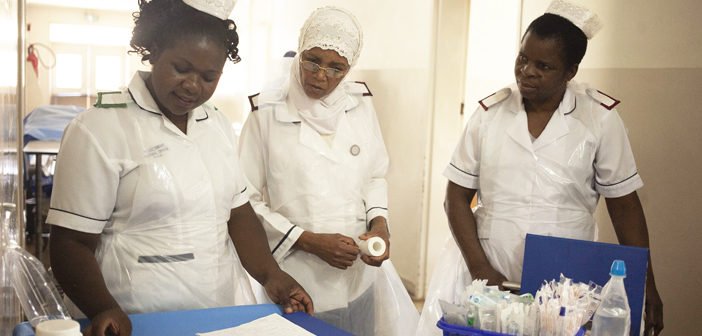UHC Advancement: Key Role of Nurses Stressed in 2020 Nursing Report
The recently released State of the World’s Nursing 2020 report emphasizes that nurses’ education and training programs should focus on producing graduates who can drive progress in primary health care and Universal Health Coverage (UHC). This report, a collaboration between the World Health Organization, International Nurses Council, and the Nursing Now Global Campaign, highlights the crucial role of nurses in contributing to UHC and other national and global health objectives.
It underscores the significant contributions of nurses across various clinical interventions and public health domains, including ensuring quality care, patient safety, infection prevention and control, and combating antimicrobial resistance. The report also acknowledges the pivotal role nurses play in managing global health crises such as SARS, MERS-CoV, Zika virus, Ebola, and the ongoing COVID-19 pandemic.
In light of these contributions, the report advocates for nursing to be seen as a career grounded in science, technology, teamwork, and health equity. It calls on governments to invest in nursing faculties, clinical placement sites, and accessible education programs to meet the demand for nursing graduates.
Moreover, the report recommends that governments and national stakeholders lead discussions on appropriate entry-level and specialization programs for nurses, aligning curricula with national health priorities and emerging global issues. This approach aims to ensure that nurses are prepared to work effectively in interprofessional teams and equipped with the necessary competencies in health technology.
The report also addresses the global shortage of nurses, highlighting the need to increase the number of nurse graduates by 8% annually to meet the demand by 2030. It emphasizes the importance of effectively managing nurse migration to prevent exacerbating shortages and inequitable access to health services. Recommendations include monitoring nurse mobility, implementing ethical recruitment practices, and investing in domestic production of nurses to reduce reliance on migrant nurses.
Furthermore, the report highlights gender-based pay gaps and discrimination within the nursing workforce, with women comprising 90% of the nursing workforce but holding few leadership positions in health. It calls for efforts to address gender disparities and promote gender equity within the nursing profession and healthcare sector as a whole.













